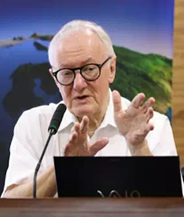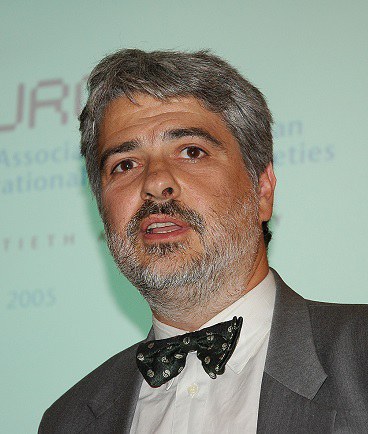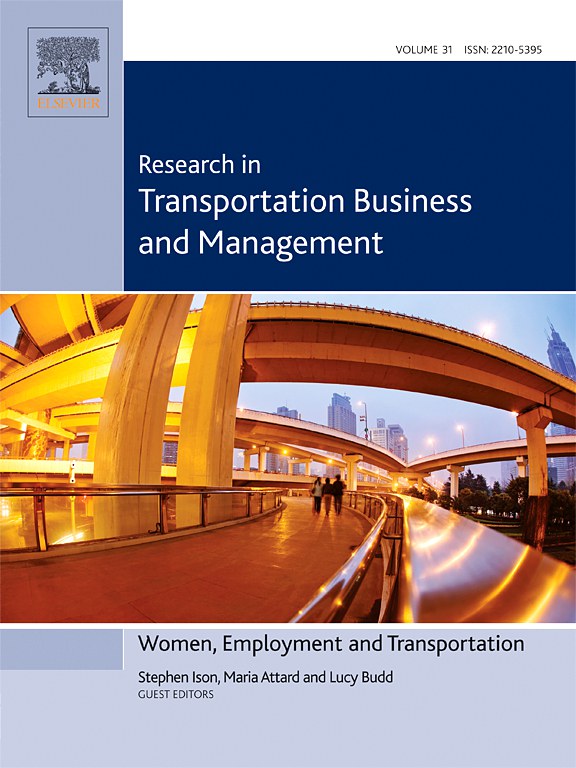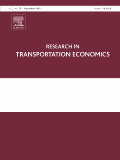The 20th International Conference on Computational Science and Its Applications
Corona virus outbreak
Dear Colleagues and Friends,
We believe it is essential to inform all the potential participants of the forthcoming ICCSA 2020 about our ongoing organising effort, and to address the concerns amidst the uncertainties of the corona virus outbreak in Italy and in many other countries.
First of all, we want to rest you assured that we are keeping on working full steam with our local committee to guarantee a successful, stimulating and pleasant organisation of the conference in Cagliari this summer.
We understand that presently some potential conference participants may have concerns about visiting Cagliari. Although at the moment the island of Sardinia has been spared from the bulk of the Italian outbreak, the safety of the conference participants is our highest and foremost priority. So we want to assure you that, should the local conditions change to put in jeopardy the safety of the participants, we are prepared and willing to take swift and responsible decisions, following all the preventive measures recommended by the Italian and international authorities.
In the meantime, we want to categorically assure all the potential participants that the proceedings (Springer LNCS) will be published, containing all the papers that will have been registered by the established deadlines. This is our unconditional commitment, regardless of any other conceivable decision about the conference organisation. With this commitment, and in hope for a rapid improvement of the general situation, we encourage all the old and new friends to submit their papers to keep the opportunity to join us in Cagliari for the ICCSA 2020.
To put it briefly: keep calm and submit the damn paper!
We remain at your complete disposal for further information and assistance, and thank you for your attention, understanding and trust.
Best regards,
Corona virus outbreak: Extended deadlines
Dear friends,
we hope you are well, beyond the hardships that everyone, in every part of the world, is experiencing.
We would like to thank you for your extraordinary work and collaboration to make it possible to achieve ICCSA 2020.
We would particularly like to thank the local organising committee that has done and is doing a gigantic job to make the event beautiful.
Corona virus infection is making everything very uncertain, which is why we have agreed with the Editors (Springer and CPS) to publish the proceedings after the conference. This allows us to extend the deadlines by more than a month, so that we can make subsequent decisions in light of what will happen in the coming weeks.
We look forward to your cooperation and assure you that we will do everything we can to live together in the joy of ICCSA 2020.
ICCSA 2020 goes online!
This year, the ICCSA conference will move to online.
Due to the uncertainties and restrictions related to the coronavirus pandemic, we have decided to hold this year's conference as a virtual, online-only event.
Some important matters relating to the virtual conference of ICCSA 2020 are as follows:
- All accepted papers will be published by Springer in its LNCS series as a post-conference proceedings;
- The new registration fees will be a single flat rate of 150€ per paper;
- Paper submission deadline and important dates stay the same:
- April 26: deadline for paper submission to the General Tracks (individual workshops may have different dates)
- May 24: Notification of Acceptance
- June 15: Submission deadline for the final version of the Proceeding Paper
The dates of the ICCSA 2020 virtual conference will most likely remain the same (1-4 July 2020), although some activities may be rearranged and adapted to better suit time differences and the online presentation and discussion formats.
Our effort will now shift to designing and organising a productive and meaningful conference experience, adapting the established ICCSA activities and features (e.g. keynote addresses, parallel sessions, best paper awards, etc.) to the new online format. In this, we will seek to actively involve all workshop organisers and session chairs. Their support will be essential for the success of the conference, and we wish to thank them in advance for their help and understanding.
Further information, including operational matters, will be soon made available.
Notification postponed to June 7, 2020
Because of the Coronavirus pandemic and some delays in the reviewing process, the Notification of acceptance/rejection has been postponed to June 7, 2020.
The deadline for registration has been postponed to June 23, 2020.
Notification
- https://2020.iccsa.org/notification
- Notification
- 2020-06-07T00:00:00+02:00
- 2020-06-07T23:59:59+02:00
- When Jun 07, 2020 (Europe/Rome / UTC200)
-
Add event to calendar
iCal
The upload of Camera Ready papers and source files will be postponed
Because of the reviewing phase is still running, the upload of the Camera ready papers and of the source files will be activated after June the 8th.
Upload of the Camera ready paper and Source Files
The upload of the Camera Ready paper (PDF) and of all Source Files is available at https://cyb20.iccsa.org
Please proceed also with the upload of the pre-filled Copyright Form
Finally don't miss to register to the conference before june 24th, 2020
Update on ICCSA2020 organisation, registration deadline (and news from the engine room)
Dear colleagues and ICCSA participants,
Let me first, on behalf of the conference chairs and the organising committee, express our gratitude for your effort and trust.
We were astonished by your interest and the sheer quantity of proposed contributions. We have accepted about 500 paper altogether, divided between the main conference tracks and more than 50 workshops.
For all of us, these have been intensive couple of months of efforts to design and set up a productive and meaningful conference experience, adapting the established ICCSA activities to the online format.
Special praise goes to the workshop chairs, to the main tracks program committee, and to all the reviewers, who have been working hard to keep up with, and to assure a rigorous review process.
There is a tiny backlog of papers still under review which we expect to complete before the end of this week, but the bulk of it done and ready.
At this moment, we are inviting all of you who haven’t done it yet, to register for the conference by 24th June 2020:
http://2020.iccsa.org/registration-info
This is a hard deadline, because, as we announced, the publication of the paper in the LNCS proceedings is conditional on the registration and on the presentation of the paper in the online session.
I don’t want to overburden you with further information in this message. Soon we will announce and publish the conference program with the scheduling of the online activities and sessions. Also, we will send you in a separate communication all the technical instructions for you to be able to participate in online activities.
To end with a cliffhanger, we have locked in a terrific line-up of speakers for keynote lectures and panels. We just need to finalise some last arrangements and details to be able to announce them, so stay tuned!
Thank you.
Ivan Blečić
General co-chair of ICCSA 2020 Conference
Department of Civil & Environmental Engineering and Architecture
University of Cagliari, Italy
Templates for Presentations
Templates for delivering Virtual presentations in various formats:
Open Document Presentation (ODP)
Open Template Presentation (OTP)
ICCSA 2020 Template for Presentations (Open Document Presentation, ODP)
![]() TemplateICCSA2020.odp
— 504.8 KB
TemplateICCSA2020.odp
— 504.8 KB
ICCSA 2020 Template for Presentations (Open Template Presentation, OTP)
![]() TemplateICCSA2020.otp
— 504.9 KB
TemplateICCSA2020.otp
— 504.9 KB
ICCSA 2020 Template for Presentations (Microsoft PowerPoint, PPTX)
![]() TemplateICCSA2020.pptx
— 515.4 KB
TemplateICCSA2020.pptx
— 515.4 KB
Privacy Policy
|
ICCSA Privacy Policy
Effective on: April 15, 2004 Last Updated: October 23, 2018 |
ICCSA is committed to respecting your privacy. When you choose to open an account, submit an abstract, a paper or a camera ready version of your paper for publishing it in the Proceedings, all of the information provided to us is kept strictly private, including names, addresses and scientific interests and expertise. ICCSA does not use or distribute information collected during the registration. The above statements apply both to the Main Conference Website (http://2020.iccsa.org) and to the Electronic Submission System (https://cyb20.iccsa.org).
- We do NOT rent or sell lists of personal information of any type.
- We do NOT use personal information collected during registrations for solicitations.
- If you are a ICCSA registered user, we may on occasion send you an email update about the features and services added to our site.
ICCSA takes online privacy seriously. It is our way of sustaining your trust in us and in our services. Any material changes to our privacy policy will be posted on our web site prior to making such changes.
Log Files
As is true of most Web sites, we gather certain information automatically and store it in log files. This information includes internet protocol (IP) addresses, browser type, internet service provider (ISP), referring/exit pages, operating system, date/time stamp, and clickstream data.
We use this information, which does not identify individual users, to analyze trends, to administer the site, to track users' movements around the site and to gather demographic information about our user base as a whole.
We do not link this automatically-collected data to personally identifiable information.
Cookies
A cookie is a small text file that is stored on a user's computer for record-keeping purposes. We may use cookies on this site, however we do not link the information stored in cookies to any personally identifiable information you submit while on our site. We only use session ID cookies to make it easier for you to navigate our site. A session ID cookie expires when you close your browser.
Links to Other Sites
This Web site and the Electronic Submission System contain links to other sites that are not owned or controlled by ICCSA. Please be aware that we, ICCSA, are not responsible for the privacy practices of such other sites.
We encourage you to be aware when you leave our site and to read the privacy statements of each and every Web site that collects personally identifiable information.
This privacy statement applies only to information collected by this Web site and by the Elecronic Submission System.
Security
We follow generally accepted industry standards to protect the personal information submitted to us, both during transmission and once we receive it. No method of transmission over the Internet, or method of electronic storage, is 100% secure, however. Therefore, while we strive to use commercially acceptable means to protect your personal information, we cannot guarantee its absolute security.
If you have any questions about security on our Web site, you can send an email to us
Children
ICCSA does not sell products or services for purchase by children under the age of eighteen (Minors). ICCSA does not knowingly solicit or collect personal information from Minors, and ICCSA will not knowingly link to any third party web site that solicits or collects personal information from Minors. If you believe that a Minor has disclosed personal information to ICCSA or that ICCSA has linked to such a third party web site, please contact us at:
advisor <at> iccsa.org
so that the information and/or link can be removed.
Changes in this Privacy Statement
If we decide to change our privacy policy, we will post those changes to this privacy statement, the homepage, and other places we deem appropriate so that you are aware of what information we collect, how we use it, and under what circumstances, if any, we disclose it.
We reserve the right to modify this privacy statement at any time, so please review it frequently. If we make material changes to this policy, we will notify you here, by email, or by means of a notice on our home page.
Contact Us
If you have any questions or suggestions regarding our privacy policy, please send an email to us .
Keynote speakers and closing panel
THE LINK TO LIVE STREAMS ARE BELOW.
This year's conference will offers three keynote lectures and the closing keynote panel:
- 1st July: Opening Keynote Lecture
Yaneer Bar-Yam, "Complexity: Modelling and Risk Management for Covid" - 2nd July: Keynote Lecture
Vincenzo Piuri, "Ambient Intelligence for Smart Living" - 3rd July: Keynote Lecture
Cecilia Ceccarelli, "Astrochemistry: a New Challenge for Computational Chemistry" - 4th July: Closing keynote panel
Mike Batty, Denise Pumain and Alexis Tsoukiàs, "POST-PANDEMIC CITIES: How to think about the future, without predicting it."
All the keynote events will be streamed live on ICCSA Youtube channel.
Below is an overview of the invited speakers and their talks, together with the LINK TO LIVE STREAMS.
Opening Keynote Lecture
Wednesday, 1 July 2020
3-4 p.m. CET
Link to live stream: https://youtu.be/3jDhM_sjxrw
Yaneer Bar-Yam
Complexity: Modelling and Risk Management for Covid
Engaging in scientific analyses of real world conditions in support of individual and policy decisions presents different challenges than standard academic discourse. In this keynote lecture we will review these differences and how they have manifested in the outbreak response for the Coronavirus pandemic.
Moderators:
Ivan Blečić (Università di Cagliari, Italia)
Giovanni Fusco (CNRS, Université Côte d'Azur, France)
 Yaneer Bar-Yam holds an SB and PhD in physics from MIT. Since the late 1980s he has contributed to founding the field of complex systems science, introducing fundamental mathematical rigor, real world application, and educational programs for new concepts and insights of this field.
Yaneer Bar-Yam holds an SB and PhD in physics from MIT. Since the late 1980s he has contributed to founding the field of complex systems science, introducing fundamental mathematical rigor, real world application, and educational programs for new concepts and insights of this field.
He is the founding president of the New England Complex Systems Institute (NECSI) and the founder of the EndCoronavirus.org initiative, a global network of over 4,000 volunteers formed in February 2020 to provide information, guidelines, and policy advocacy to fight the COVID-19 pandemic.
His recent work quantitatively analyses the origins and impacts of market crashes, social unrest, ethnic violence, military conflict and pandemics, the structure and dynamics of social networks, as well as the bases of creativity, panic, evolution and altruism.
He has advised the U.S. Government on global social unrest and the crises in Egypt and Syria, counterterrorism strategies, military force transformation, market regulation, delivery of disease prevention services and control of hospital infections. He regularly advises NGOs and corporations regarding their use of complex systems science.
He has authored more than 200 journal articles. His work on the causes of the global food crisis was cited among the top 10 scientific discoveries of 2011 by Wired magazine. His scientific visualizations received recognition as “best of” from Wired in 2011 and 2013, and from Motherboard in 2013.
Keynote Lecture
Thursday, 2 July 2020
3-4 p.m. CET
Link to live stream: https://youtu.be/ZJ24ETc3ZCM
Vincenzo Piuri
Ambient intelligence for smart living
Adaptability and advanced services for ambient intelligence require an intelligent technological support for understanding the current needs and the desires of users in the interactions with the environment for their daily use, as well as for understanding the current status of the environment also in complex situations. This infrastructure constitutes an essential base for smart living. Various technologies are nowadays converging to support the creation of efficient and effective infrastructures for ambient intelligence.
Artificial intelligence can provide flexible techniques for designing and implementing monitoring and control systems, which can be configured from behavioral examples or by mimicking approximate reasoning processes to achieve adaptable systems. Machine learning can be effective in extracting knowledge form data and learn the actual and desired behaviors and needs of individuals as well as the environment to support informed decisions in managing the environment itself and its adaptation to the people’s needs.
Biometrics can help in identifying individuals or groups: their profiles can be used for adjusting the behavior of the environment. Machine learning can be exploited for dynamically learning the preferences and needs of individuals and enrich/update the profile associated either to such individual or to the group. Biometrics can also be used to create advanced human-computer interaction frameworks.
Cloud computing environments will be instrumental in allowing for world-wide availability of knowledge about the preferences and needs of individuals as well as services for ambient intelligence to build applications easily.
This talk will analyze the opportunities offered by these technologies to support the realization of adaptable operations and intelligent services for smart living in an ambient intelligent infrastructures.
Moderators:
Bernady O. Apduhan (Kyushu Sangyo University, Japan)
Chiara Garau (Università di Cagliari, Italia)
 Vincenzo Piuri has received his Ph.D. in computer engineering at Politecnico di Milano, Italy (1989). He is Full Professor in computer engineering at the Università degli Studi di Milano, Italy (since 2000). He has been Associate Professor at Politecnico di Milano, Italy and Visiting Professor at the University of Texas at Austin and at George Mason University, USA.
Vincenzo Piuri has received his Ph.D. in computer engineering at Politecnico di Milano, Italy (1989). He is Full Professor in computer engineering at the Università degli Studi di Milano, Italy (since 2000). He has been Associate Professor at Politecnico di Milano, Italy and Visiting Professor at the University of Texas at Austin and at George Mason University, USA.
His main research interests are: artificial intelligence, computational intelligence, intelligent systems, machine learning, pattern analysis and recognition, signal and image processing, biometrics, intelligent measurement systems, industrial applications, digital processing architectures, fault tolerance, dependability, cloud computing and internet-of-things infrastructures. Original results have been published in more than 400 papers in international journals, proceedings of international conferences, books, and book chapters.
He is Fellow of the IEEE, Distinguished Scientist of ACM, and Senior Member of INNS. He has been IEEE Vice President for Technical Activities (2015), IEEE Director, President of the IEEE Computational Intelligence Society, Vice President for Education of the IEEE Biometrics Council, Vice President for Publications of the IEEE Instrumentation and Measurement Society and the IEEE Systems Council, and Vice President for Membership of the IEEE Computational Intelligence Society.
He is a candidate for IEEE Region 8 Director.
He is Editor-in-Chief of the IEEE Systems Journal (2013-19), and Associate Editor of the IEEE Transactions on Cloud Computing and IEEE Access, and has been Associate Editor of the IEEE Transactions on Computers, the IEEE Transactions on Neural Networks and the IEEE Transactions on Instrumentation and Measurement.
He received the IEEE Instrumentation and Measurement Society Technical Award (2002). He is Honorary Professor at: Obuda University, Hungary; Guangdong University of Petrochemical Technology, China; Northeastern University, China; Muroran Institute of Technology, Japan; and the Amity University, India.
Keynote Lecture
Friday, 3 July 2020
3-4 p.m. CET
Link to live stream: https://youtu.be/eDUZeSDxO04
Cecilia Ceccarelli
Astrochemistry: a new challenge for computational chemistry
The discovery in 1937 of the first, diatomic, molecule in the interstellar medium (ISM) took astronomers and chemists by surprise: how is it possible that molecules form in the harsh ISM environment, where one hydrogen atom meets a carbon one once every 10,000 years at best and where the temperature is not more than 10—20 K?
At present, about 200 interstellar molecules, containing up to 13 atoms, are detected (if one excludes the large Polycyclic Aromatic Hydrocarbons, PAHs). All those with more than six atoms contain carbon and are called by astronomers “interstellar Complex Organic Molecules” (iCOMs). The latter are particularly numerous and abundant in regions where future Solar-like planetary systems are at present forming, which makes wonder whether interstellar chemistry had any role in the emergence of life on Earth.
Yet, after more than eighty years, the question how interstellar molecules and, more specifically, iCOMs form in the ISM remains open. The major difficulty in answering it is that it is extremely difficult, if not impossible to reproduce the interstellar conditions on terrestrial laboratories. In the last years, however, it has become evident that computational chemistry could be the life buoy to understand astrochemistry.
In this key note, I will review what iCOMs are observed, in what quantity, in which regions and when during the formation of a Solar-like planetary system, as well as the competing theories for their formation.
I will show the crucial role of computational chemistry in understanding the iCOMs origin. I will provide specific examples of the interaction and synergy between astronomical observations and theoretical computations. Thanks to that we are starting to open new avenues that hopefully will lead us to the solution of a riddle that has baffled astrochemists for decades.
Moderators:
Osvaldo Gervasi (Università di Perugia, Italia)
David Tanier (Monash University, Australia)

Cecilia Ceccarelli is an Astronomer at the Institute de Planétologie et Astrophysique de Grenoble (IPAG) of the Université Grenoble Alpes (UGA), in France. She started her career with a thesis on the Cosmic Background Radiation at the Università La Sapienza di Roma (Italy) in 1982. In 1987, she joined the Italian CNR and worked on Star Formation. In 2000, she moved to France, where she joined IPAG and worked on Astrochemistry. Since then, her main research focus is the chemistry of young forming systems that will eventually form Solar-like planetary systems. She co-authored about 300 articles in peer-reviewed international journals and led several large international projects, last in date the European funded Initial Training Network ACO (Astro-Chemical Origins).
In 2006, she received the prize to the career Irène Joliot-Curie 2006 ``Femme Scientifique de l'année'', awarded by the French Ministère Délègue à l'Enseignement Supérieur et à la Recherche. In 2017, she was awarded the European Research Council (ERC) Advanced Grant project “the Dawn of Organic Chemistry”.
Closing Keynote Panel
Saturday, 4 July 2020
4-5:30 p.m. CET
Link to live stream: https://youtu.be/qF_Xve5sDyo
Mike Batty, Denise Pumain and Alexis Tsoukiàs
POST-PANDEMIC CITIES:
How to think about the future, without predicting it.
The three scholars will each give an introductory 15-20 minutes talk, and then engage in a debate with moderators on post-pandemic cities.
Moderators:
Małgorzata Hanzl (Politechnika Łódzka, Polska)
Beniamino Murgante (Università della Basilicata, Italia)
Ljiljana Živković (Ministarstvo GSI, IAUS, Srbija)
The titles and abstract of the talks follow. Short biographies further below.
Mike Batty
" The New Normal: Embedding Social Distancing into Urban Models"
Abstract. In this talk, I will explain the rationale for building an urban which we call QUANT (Quantitative Urban ANalyTics) for an entire nation at the same sort of scale at which we usually build them for individual cities. In essence, many of the planning policies that now dominate Great Britain cut across the entire regional economies of the constituent nations – England, Wales and Scotland and we no longer have the luxury of treating individual cities as being separate from one another. Big infrastructure projects such as the development of high speed rail, new airport runways, systemic changes to intercity travel using new rail and road systems, some of them based on endowing intelligence into both the transportation network system as well as the vehicles, all have nationwide impacts. The current Coronavirus does not mean that these projects and their models are no longer relevant. Doubtless some of them will not go ahead but the widespread changes to the country’s transport systems will have new types of impact that before the Pandemic were simply not anticipated. For example in cities, there is likely to be a big switch away from public transport as capacities are reduced to secure safe distancing while there is likely to be a big shift back to car travel. This will change the whole basis of moving to more compact cities and thus we see this model as being a set of instruments that enable us to figure out if cities will expand or contract in diverse ways, if new forms of transport infrastructure are privileged over conventional ones and how densities might change to effect new concerns over social distancing. To examine these changes systematically across the whole nation, we require a model such as this one from which we can measure changes in the amount of travel we make and its costs in such way that populations are likely to react to new norms and goals: in short to a new normal. In fact, if we have to embed social distancing into our models, then this means that we need to couple our models across all scales so that we can deal with distancing, capacity and density at the finest scale which will have impacts at every scale at which we interact and travel.
Denise Pumain
"Deconstructing expected Change in Geographical Systems after Pandemic"
Abstract. The recent pandemic that has developed in all regions of the world is an unprecedented shock. From a geographical point of view, the novelty of the event lies in the global scale of the contamination, the astonishing speed of its spread, and an even faster dissemination of information, despite delays and inaccuracies. The novelty also lies in the significant convergence of measures taken to contain the epidemic, through the social distancing and confinement of populations, which in a few weeks affected more than half of the world's population. Opposing experiments have been attempted, and trade-offs of different intensity have been chosen between health protection and the maintenance of economic activity. Even if the causes of the emergence of the epidemic and the conditions of its uneven severity and spread are still under study, a consensus has emerged overall to show the greater vulnerability of the regions most connected to globalization and the most densely populated urban areas. Could this dramatically change our future way of inhabiting the Earth?
In this talk, I propose to compare the hypotheses that have most often been put forward (reduction of mobility and trade, questioning of globalisation, the end of metropolises, increased attractiveness of small and medium-sized towns...) and the knowledge we have acquired from the observed evolution of settlement systems. The concept of system is widely used in urban science because of the growing interdependencies developed in the networks that build cities at all scales of observation. I will recall the regularities of the processes of adopting innovations and adapting to change in urban dynamics and their consequences in terms of trends towards qualitative standardization and the widening of quantitative inequalities. I will examine the impact on the evolution of cities of the very great shocks that have occurred over the course of history. I will draw conclusions to improve our predictions of future trends in urbanization through models that will better explain the effect of spatiotemporal processes of social interaction on the materiality of cities.
Alexis Tsoukiàs
"Numbers, emotions and collective threats"
Abstract. The talk uses recent examples of "misused" empirical observations under form of inappropriate statistics which created emotions in the public opinion and discussions about the relevance of public policies. We then show how the use of appropriately designed quantitative information can help the design of public policies and most precisely for the management of collective threats.
The Panel
 Michael Batty is Bartlett Professor of Planning at University College London where he is Chair of the Centre for Advanced Spatial Analysis (CASA). He has worked on computer models of cities and their visualisation since the 1970s and his recent publications are Cities and Complexity (2005) The New Science of Cities (2013) and Inventing Future Cities (2018), all published by The MIT Press. He was Professor of City Planning and Dean of the School of Environmental Design at the University of Cardiff from 1979 to 1990 and then Director of the NCGIA at SUNY Buffalo from 1990 to 1995. He is a Fellow of the British Academy, the Royal Society, and was awarded the CBE in the Birthday Honours List in 2004. He received the Gold Medal of the RGS (2015) and the Gold Medal of the RTPI in 2016. He is the editor of Environment and Planning B.
Michael Batty is Bartlett Professor of Planning at University College London where he is Chair of the Centre for Advanced Spatial Analysis (CASA). He has worked on computer models of cities and their visualisation since the 1970s and his recent publications are Cities and Complexity (2005) The New Science of Cities (2013) and Inventing Future Cities (2018), all published by The MIT Press. He was Professor of City Planning and Dean of the School of Environmental Design at the University of Cardiff from 1979 to 1990 and then Director of the NCGIA at SUNY Buffalo from 1990 to 1995. He is a Fellow of the British Academy, the Royal Society, and was awarded the CBE in the Birthday Honours List in 2004. He received the Gold Medal of the RGS (2015) and the Gold Medal of the RTPI in 2016. He is the editor of Environment and Planning B.
 Denise Pumain is geographer, Emeritus Professor at University Paris I Pantheon-Sorbonne. Her contribution is about building an evolutionary theory of urban systems and transferring concepts and models from complex systems towards social sciences. She directed the laboratory Géographie-cités, was Chair of the IGU Commission on Urban Geography, PI of the ERC grant GeoDiverCity. She is founder and Director of Cybergeo, European Journal of Geography. Last publications: Hierarchy in natural and social sciences, Springer, 2006; Complexity perspectives on innovation and social change, Springer, 2009; Urban Dynamics and simulation models, Springer, 2017; International and Transnational perspectives on urban systems, IGU and Springer 2018; Geographical Modelling, Wiley 2019; Theories and models of urbanisation, Springer 2020. Vautrin Lud prize 2010 ; CNRS Silver Medal 2010 ; Officier de la Légion d’Honneur 2009.
Denise Pumain is geographer, Emeritus Professor at University Paris I Pantheon-Sorbonne. Her contribution is about building an evolutionary theory of urban systems and transferring concepts and models from complex systems towards social sciences. She directed the laboratory Géographie-cités, was Chair of the IGU Commission on Urban Geography, PI of the ERC grant GeoDiverCity. She is founder and Director of Cybergeo, European Journal of Geography. Last publications: Hierarchy in natural and social sciences, Springer, 2006; Complexity perspectives on innovation and social change, Springer, 2009; Urban Dynamics and simulation models, Springer, 2017; International and Transnational perspectives on urban systems, IGU and Springer 2018; Geographical Modelling, Wiley 2019; Theories and models of urbanisation, Springer 2020. Vautrin Lud prize 2010 ; CNRS Silver Medal 2010 ; Officier de la Légion d’Honneur 2009.
 Alexis Tsoukiàs is a CNRS research director at LAMSADE, PSL University, Université Paris Dauphine. Coordinator of the Peace Studies Master at Université Paris Dauphine. He was Director of the LAMSADE until 2018 and national coordinator of the Policy Analytics Research Network (GDR 3270). His research interests include subjects of multiple criteria decision analysis, non conventional preference modelling, policy analytics, applied non classical logics, ordinal mathematical programming, artificial intelligence and decision theory. Co-author of two books and more than 90 journal articles and book contributions. He has been vice-president of ROADEF (the French OR society) as well as President of EURO (the European association of OR societies).
Alexis Tsoukiàs is a CNRS research director at LAMSADE, PSL University, Université Paris Dauphine. Coordinator of the Peace Studies Master at Université Paris Dauphine. He was Director of the LAMSADE until 2018 and national coordinator of the Policy Analytics Research Network (GDR 3270). His research interests include subjects of multiple criteria decision analysis, non conventional preference modelling, policy analytics, applied non classical logics, ordinal mathematical programming, artificial intelligence and decision theory. Co-author of two books and more than 90 journal articles and book contributions. He has been vice-president of ROADEF (the French OR society) as well as President of EURO (the European association of OR societies).
Personal web page: http://www.lamsade.dauphine.fr/~tsoukias.




